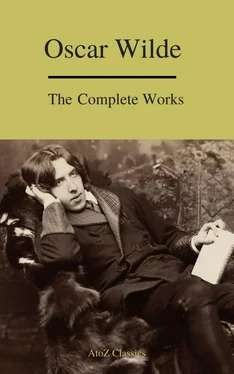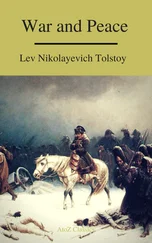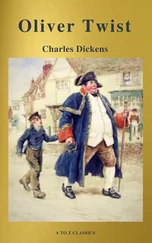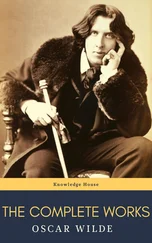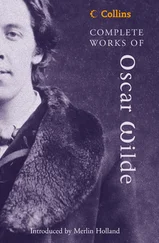I fear we may not see you here again,
And that fear saddens my too simple heart.
guido
Be not afraid, Simone. I will stand
Most constant in my friendship. But to-night
I go to mine own home, and that at once.
To-morrow, sweet Bianca.
simone
Well, well, so be it.
I would have wished for fuller converse with you,
My new friend, my honourable guest,
But that it seems may not be.
And besides
I do not doubt your father waits for you,
Wearying for voice or footstep. You, I think,
Are his one child? He has no other child.
You are the gracious pillar of his house,
The flower of a garden full of weeds.
Your father’s nephews do not love him well
·173· So run folks’ tongues in Florence. I meant but that.
Men say they envy your inheritance
And look upon your vineyards with fierce eyes
As Ahab looked on Naboth’s goodly field.
But that is but the chatter of a town
Where women talk too much.
Good-night, my lord.
Fetch a pine torch, Bianca. The old staircase
Is full of pitfalls, and the churlish moon
Grows, like a miser, niggard of her beams,
And hides her face behind a muslin mask
As harlots do when they go forth to snare
Some wretched soul in sin. Now, I will get
Your cloak and sword. Nay, pardon, my good Lord,
It is but meet that I should wait on you
Who have so honoured my poor burgher’s house,
Drunk of my wine, and broken bread, and made
Yourself a sweet familiar. Oftentimes
My wife and I will talk of this fair night
And its great issues.
·174· Why, what a sword is this.
Ferrara’s temper, pliant as a snake,
And deadlier, I doubt not. With such steel,
One need fear nothing in the moil of life.
I never touched so delicate a blade.
I have a sword too, somewhat rusted now.
We men of peace are taught humility,
And to bear many burdens on our backs,
And not to murmur at an unjust world,
And to endure unjust indignities.
We are taught that, and like the patient Jew
Find profit in our pain.
Yet I remember
How once upon the road to Padua
A robber sought to take my pack-horse from me,
I slit his throat and left him. I can bear
Dishonour, public insult, many shames,
Shrill scorn, and open contumely, but he
Who filches from me something that is mine,
Ay! though it be the meanest trencher-plate
From which I feed mine appetite—oh! he
Perils his soul and body in the theft
·175· And dies for his small sin. From what strange clay
We men are moulded!
guido
Why do you speak like this?
simone
I wonder, my Lord Guido, if my sword
Is better tempered than this steel of yours?
Shall we make trial? Or is my state too low
For you to cross your rapier against mine,
In jest, or earnest?
guido
Naught would please me better
Than to stand fronting you with naked blade
In jest, or earnest. Give me mine own sword.
Fetch yours. To-night will settle the great issue
Whether the Prince’s or the merchant’s steel
Is better tempered. Was not that your word?
Fetch your own sword. Why do you tarry, sir?
·176· simone
My lord, of all the gracious courtesies
That you have showered on my barren house
This is the highest.
Bianca, fetch my sword.
Thrust back that stool and table. We must have
An open circle for our match at arms,
And good Bianca here shall hold the torch
Lest what is but a jest grow serious.
bianca
[ to Guido ]. Oh! kill him, kill him!
simone
Hold the torch, Bianca. [ They begin to fight .]
simone
Have at you! Ah! Ha! would you?
[ He is wounded by Guido .]
A scratch, no more. The torch was in mine eyes.
Do not look sad, Bianca. It is nothing.
Your husband bleeds, ’tis nothing. Take a cloth,
·177· Bind it about mine arm. Nay, not so tight.
More softly, my good wife. And be not sad,
I pray you be not sad. No; take it off.
What matter if I bleed? [ Tears bandage off .]
Again! again!
[ Simone disarms Guido ]
My gentle Lord, you see that I was right
My sword is better tempered, finer steel,
But let us match our daggers.
bianca
[ to Guido ] Kill him! kill him!
simone
Put out the torch, Bianca. [ Bianca puts out torch .]
Now, my good Lord,
Now to the death of one, or both of us,
Or all three it may be. [ They fight .]
There and there.
Ah, devil! do I hold thee in my grip?
[ Simone overpowers Guido and throws him down over table .]
·178· guido
Fool! take your strangling fingers from my throat.
I am my father’s only son; the State
Has but one heir, and that false enemy France
Waits for the ending of my father’s line
To fall upon our city.
simone
Hush! your father
When he is childless will be happier.
As for the State, I think our state of Florence
Needs no adulterous pilot at its helm.
Your life would soil its lilies.
guido
Take off your hands
Take off your damnèd hands. Loose me, I say!
simone
Nay, you are caught in such a cunning vice
That nothing will avail you, and your life
Narrowed into a single point of shame
Ends with that shame and ends most shamefully.
·179· guido
Oh! let me have a priest before I die!
simone
What wouldst thou have a priest for? Tell thy sins
To God, whom thou shalt see this very night
And then no more for ever. Tell thy sins
To Him who is most just, being pitiless,
Most pitiful being just. As for myself …
guido
Oh! help me, sweet Bianca! help me, Bianca,
Thou knowest I am innocent of harm.
simone
What, is there life yet in those lying lips?
Die like a dog with lolling tongue! Die! Die!
And the dumb river shall receive your corse
And wash it all unheeded to the sea.
guido
Lord Christ receive my wretched soul to-night!
·180· simone
Amen to that. Now for the other.
[ He dies. Simone rises and looks at Bianca. She comes towards him as one dazed with wonder and with outstretched arms .]
bianca
Why
Did you not tell me you were so strong?
simone
Why
Did you not tell me you were beautiful?
[ He kisses her on the mouth .]
Curtain
NOVEL.
The Picture
of
Dorian Gray.
by
Oscar Wilde
Lippincott’s Monthly Magazine,
London: Ward, Lock & Co., Salisbury Square, E.C.
Philadelphia: J. B. Lippincott Company.
July 1890
[The text follows the
magazine release.]
contents.
I. II. III. IV. V.
VI. VII. VIII. IX.
X. XI. XII. XIII.
The studio was filled with the rich odor of roses, and when the light summer wind stirred amidst the trees of the garden there came through the open door the heavy scent of the lilac, or the more delicate perfume of the pink-flowering thorn.
From the corner of the divan of Persian saddle-bags on which he was lying, smoking, as usual, innumerable cigarettes, Lord Henry Wotton could just catch the gleam of the honey-sweet and honey-colored blossoms of the laburnum, whose tremulous branches seemed hardly able to bear the burden of a beauty so flame-like as theirs; and now and then the fantastic shadows of birds in flight flitted across the long tussore-silk curtains that were stretched in front of the huge window, producing a kind of momentary Japanese effect, and making him think of those pallid jade-faced painters who, in an art that is necessarily immobile, seek to convey the sense of swiftness and motion. The sullen murmur of the bees shouldering their way through the long unmown grass, or circling with monotonous insistence round the black-crocketed spires of the early June hollyhocks, seemed to make the stillness more oppressive, and the dim roar of London was like the bourdon note of a distant organ.
Читать дальше
